Calories in Cabbage, common (danish, domestic, and pointed types), freshly harvest, raw
4 calories
Serving Size 0 cup, shredded (about 35 g)
There is no photo available for this food item however it should be similar in terms of nutritional content and calorie density as the following items. You can use these for references.
(97% similar)
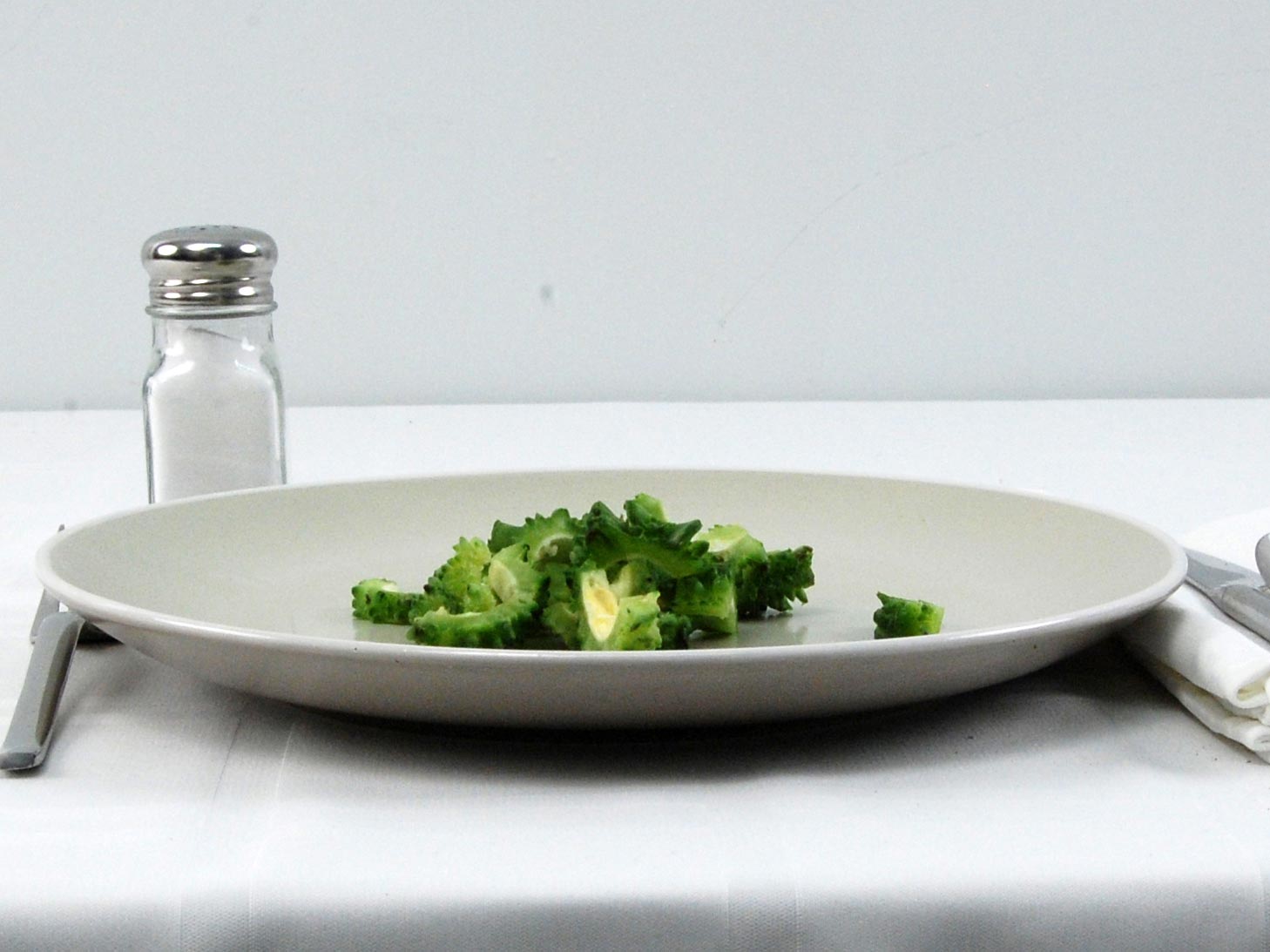
Bitter Melon - Balsam-pear
(94% similar)
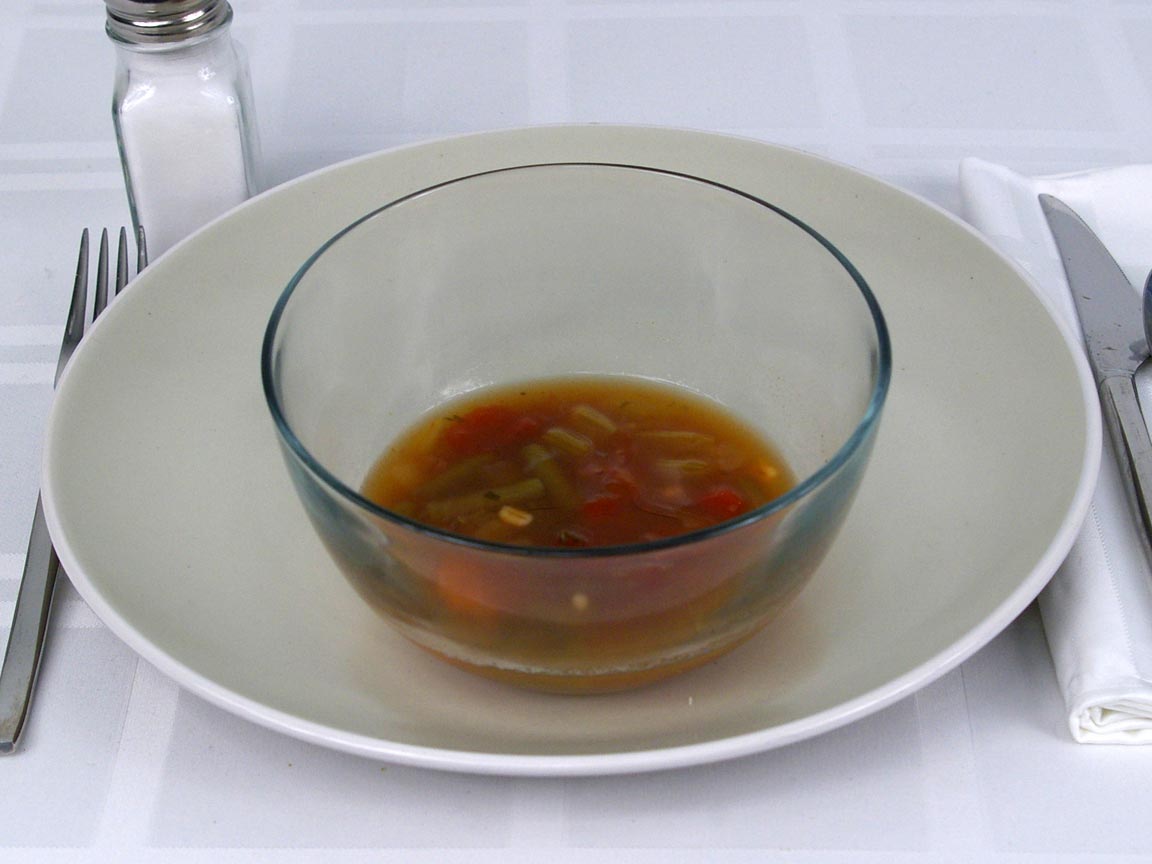
Progresso Light Vegetable Barley Soup
(93% similar)
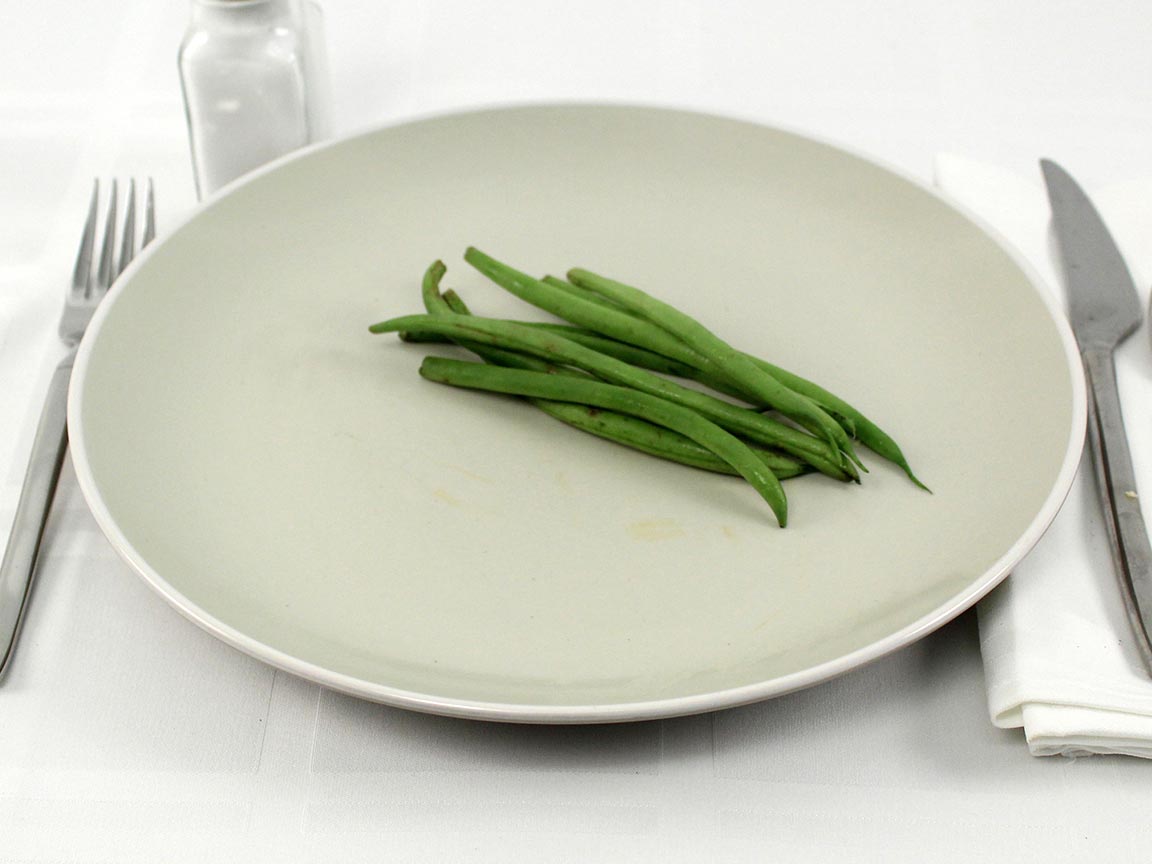
Haricot Verts - French Green Beans
(92% similar)
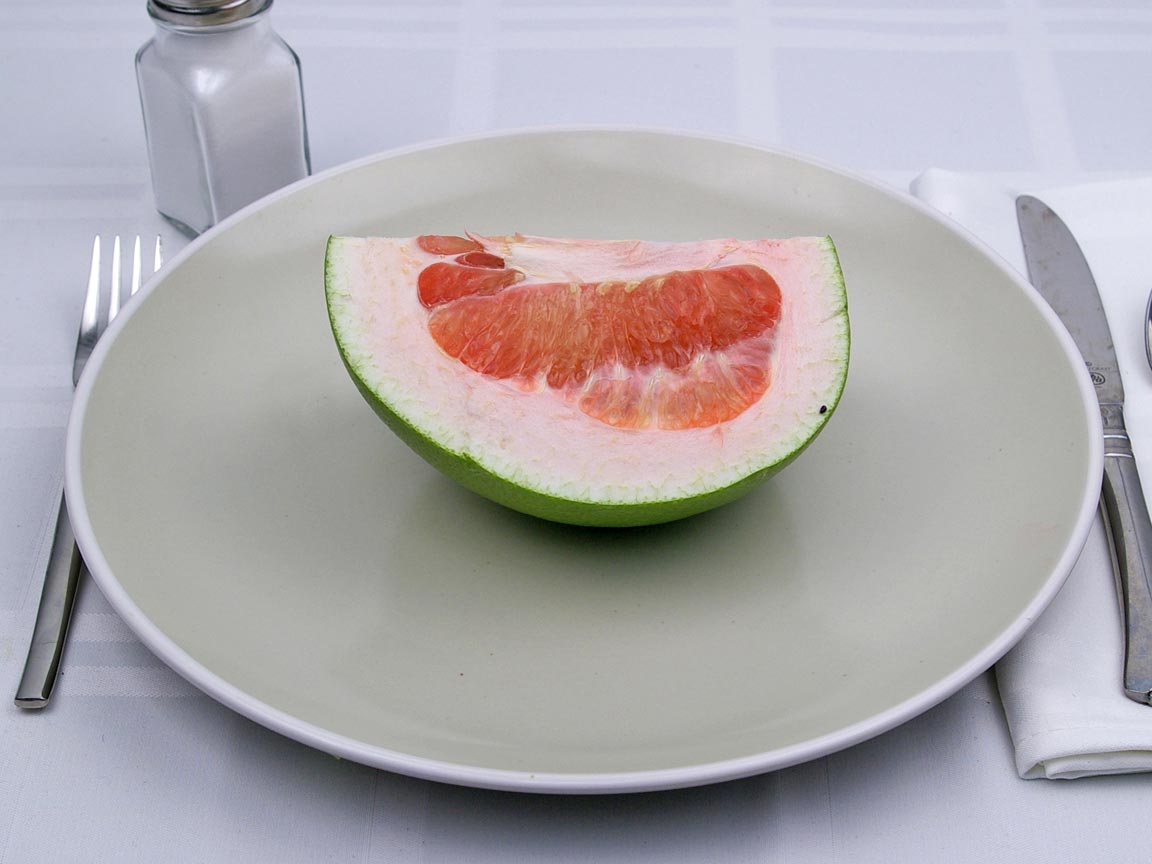
Pummelo (Pomelo)
(92% similar)
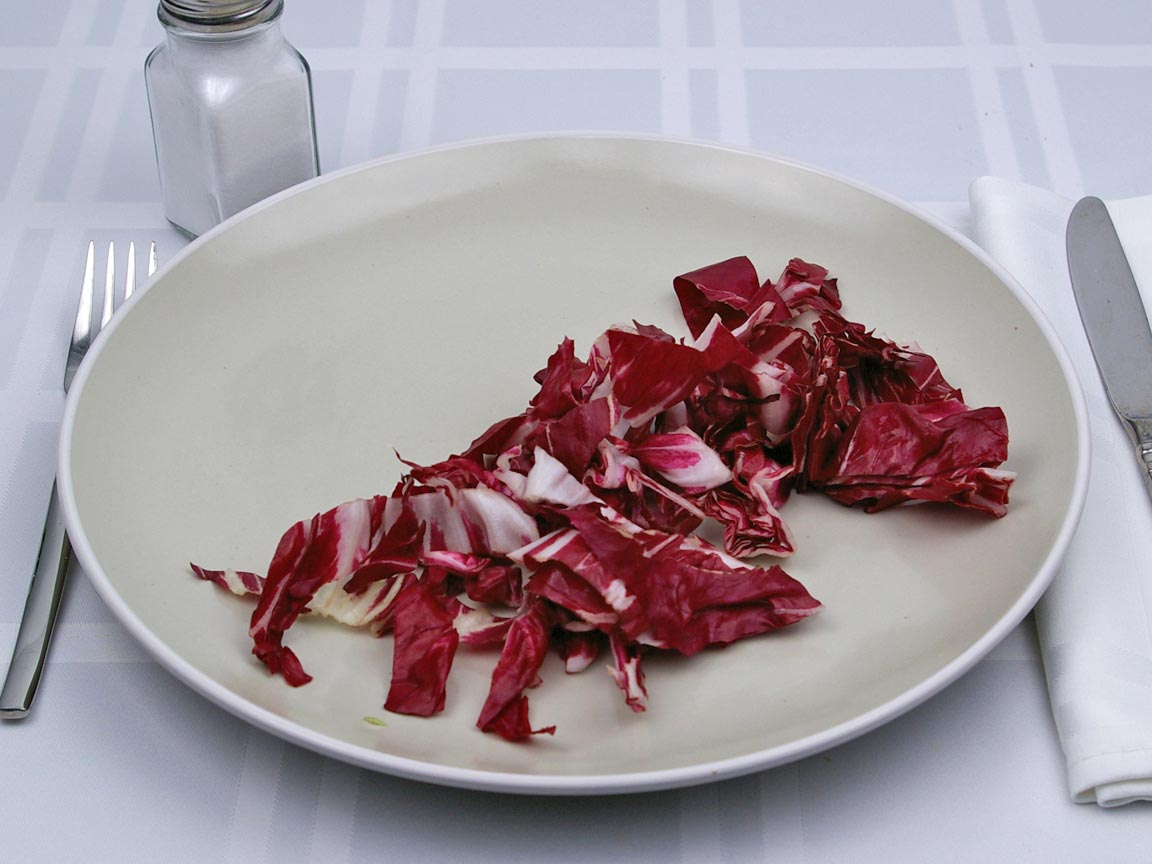
Radicchio
(89% similar)
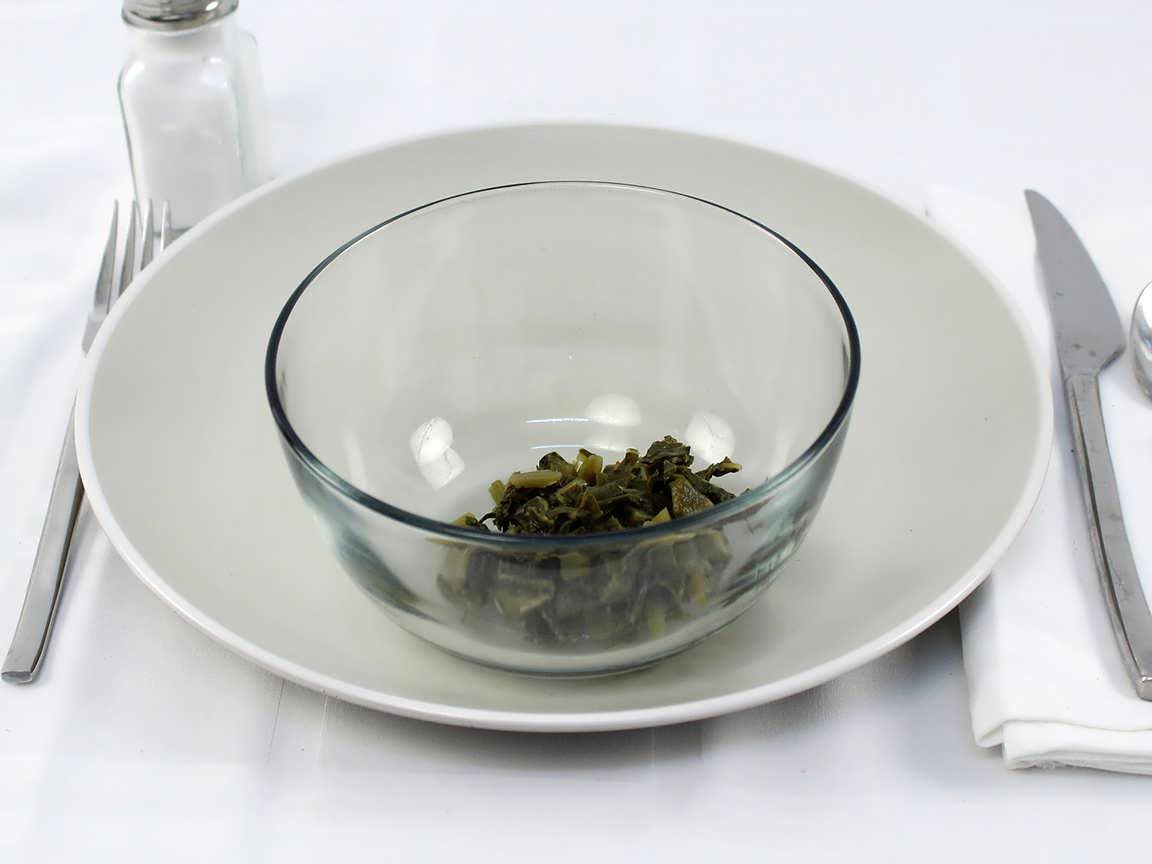
Greens Canned
Serving Size 0 cup, shredded (about 35 g)
| Amount Per Serving | ||
|---|---|---|
| Calories 4 | Calories from Fat 0 | |
| % Daily Value* | ||
|
Total Fat
0 |
0 |
|
|
Saturated Fat
0 |
0 |
|
|
Trans Fat
0 |
||
|
Cholesterol
0 |
0 |
|
|
Sodium
6 |
0 |
|
|
Total Carbohydrate
1 |
0 |
|
|
Dietary Fiber
0 |
0 |
|
|
Sugars
0 |
||
|
Protein
0 |
||
* Percent Daily Values are based on a 2,000 calorie diet. Your daily values may be higher or lower depending on your calorie needs.
Available portions
Food analysis
Low In Fat
Low Calorie Density
High In Fiber
There is 4 calories in 35 grams of Cabbage, common.
With 24 calories per 100 grams, this food would be considered a Low calorie density food.
A Low calorie density usually indicate that you can consume a larger amount of food with less calories and are usually good choices when dieting.
Cabbage, common is High in carbohydrates, Medium in proteins and Very Low in fats. You can look at the macronutrients graph below for a detailed ratio.
With a High quantity of fibers and a Low quantity of sugars, this usually indicates that it is a good choice of carbohydrates.
With 3 grams of "Net carbohydrates" per 100 grams,
it must be consumed with moderation if you are following a Keto or Ketosis diet.
Related Searches
freshly
types
pointed
and
domestic
danish
harvest
common
cabbage
raw
Macronutrients split
83.3% Carbohydrates
0.0% Fats
Nutrients and how much we eat of it play an important role on our health and body composition. To learn more on theses, check our blog posts on Proteins, Carbohydrates and Fats.